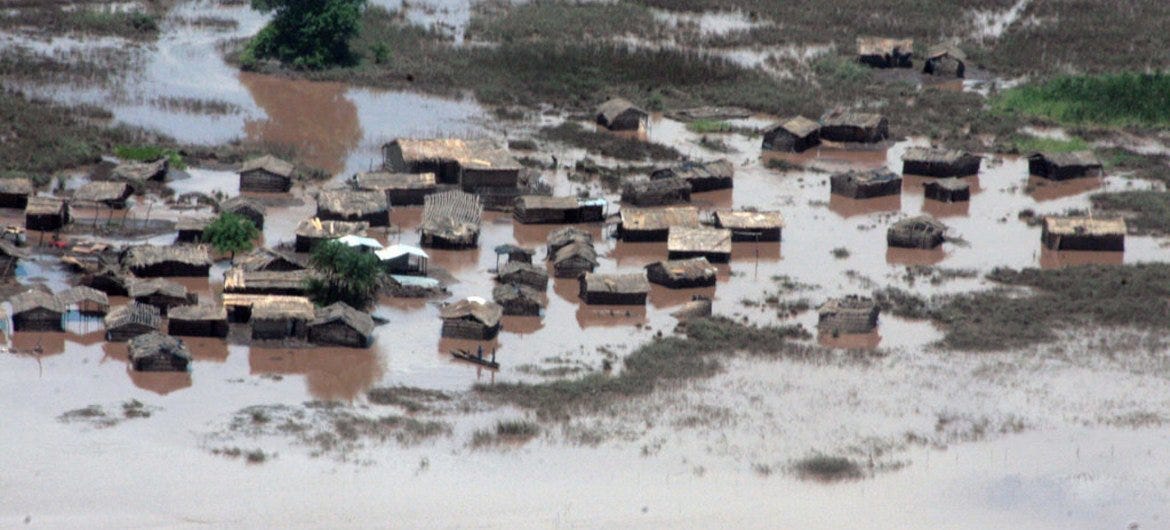Malawi receives 1.9 million doses of cholera vaccine in order to improve cholera preparedness and response readiness
Malawi is planning an oral cholera vaccination campaign in the coming weeks with the help of the World Health Organization (WHO), UNICEF, and other partners.
MALAWI: Malawi has received 1.9 million doses of Oral Cholera Vaccine (OCV) from the Global Emergency Stockpile to support the first round of oral cholera vaccinations.
Malawi is planning an oral cholera vaccination campaign in the coming weeks with the help of the World Health Organization (WHO), UNICEF, and other partners.
The vaccination campaign will target 1.9 million people, including all adults and children aged one and up who live in flood-affected and cholera-prone areas. The people who will be vaccinated against cholera will receive two doses two weeks apart.
This comes after Malawi declared a cholera outbreak on March 3, 2022. Malawi has so far recorded over 65 cholera cases and three deaths in two districts in the country's south.
Gavi, the Vaccine Alliance, has approved 3.9 million oral cholera vaccines to reduce the risk of cholera spread in flood-affected districts in Malawi.
To improve preparedness and response to cholera outbreaks in vulnerable populations, WHO has donated cholera investigation, laboratory, and case management kits totaling 64 million Malawi Kwacha to the Malawi Ministry of Health.
On 7 April 2022, the Acting WHO Representative in Malawi, Dr Janet Kayita, officially handed over the cholera kits to the Minister of Health, Honorable Khumbize Kandodo Chiponda, in Lilongwe.
To improve cholera response and readiness, these emergency cholera kits will be prepositioned in cholera high-risk districts.
Malawi was hit by moderate tropical storm Ana on January 24, 2022, causing severe flooding in 19 districts in the Southern and Central regions. The tropical storm destroyed homes, safe drinking water sources, and toilets, displacing nearly 200,000 people in makeshift camps.
According to the health assessment report, displaced people in camps have insufficient living space and access to safe drinking water, sanitation, and hygiene, putting them at risk of cholera and other vector-borne diseases.
Cholera remains a neglected disease despite many developing countries in the world facing cholera outbreaks or the threat of a cholera epidemic.” Said Dr Janet Kayita Acting WHO Representative in Malawi. “Every death from cholera is preventable with the tools we have today. Therefore, WHO commits to provide support to the Ministry of Health to implement immediate, long-term cholera control, including surveillance, outbreak response and preventive measures.”
“Despite the recurring of cholera in the country, the Ministry of Health is committed to the global strategy to eliminate cholera. With technical support from WHO, the country is implementing a multisectoral approach integrating strengthened surveillance, vaccination, community mobilization and water, sanitation and hygiene to prevent and control cholera in hotspots districts.” Said Dr Storn Kabuluzi, Director of Preventive Health Services in the Ministry of Health.
Cholera contributes significantly to the disease burden in Malawi and is endemic, with cases confirmed almost every year since the first cholera case was detected in the country in 1973 in Nsanje district. Historically, cholera outbreaks have been confirmed in districts along Lake Malawi and the Shire River valley as a result of flooding in the Southern Region's low-lying districts.
The Global Taskforce on Cholera Control (GTFCC) launched the Global roadmap for reducing cholera deaths by 90 percent by 2030, envisioning a world where cholera is no longer a public health threat.
WHO Country Offices are assisting Member States in adhering to the global roadmap by strengthening cholera preparedness and response capacity in countries such as Malawi.




